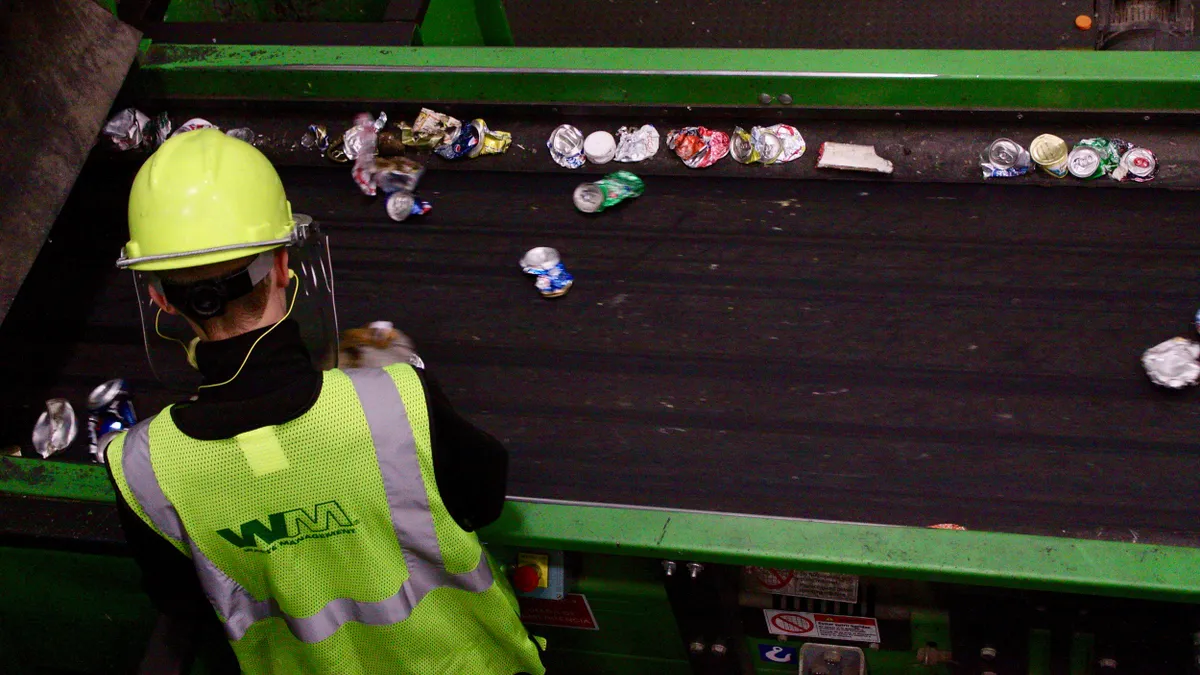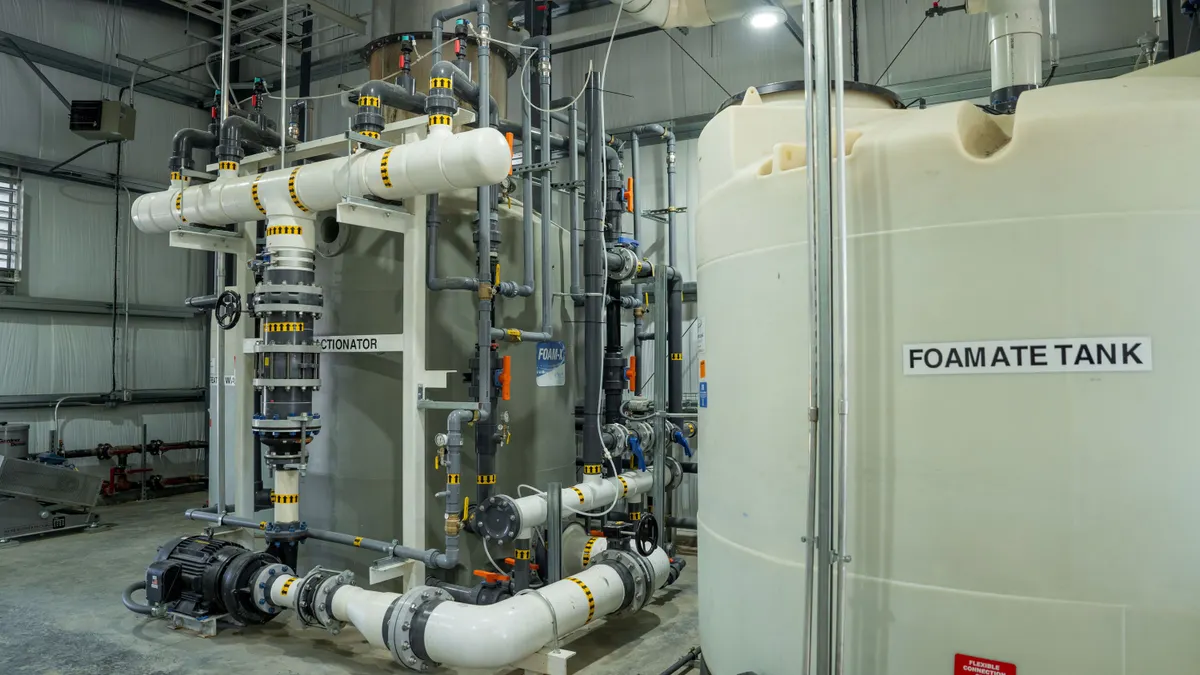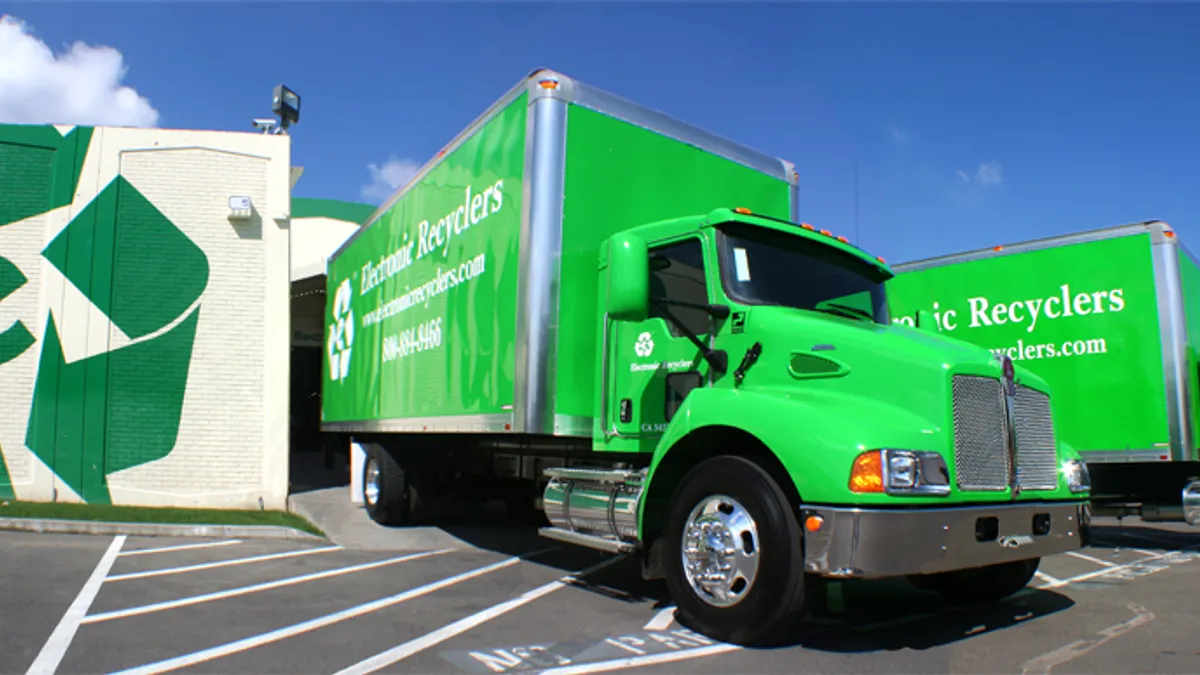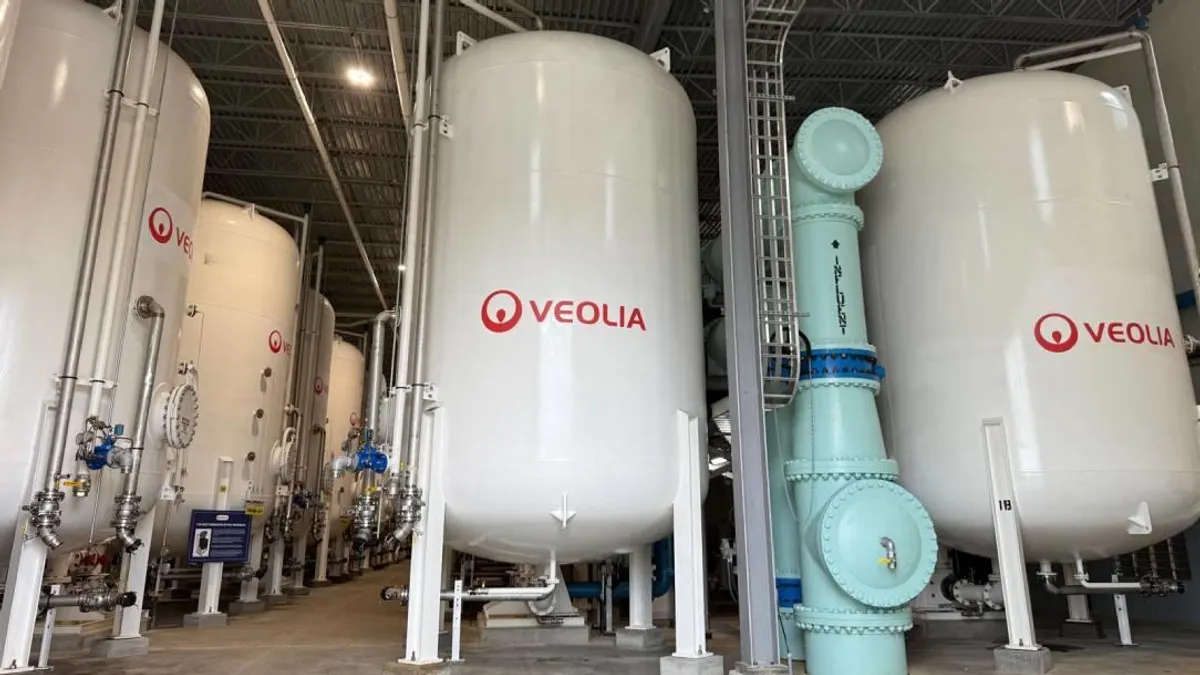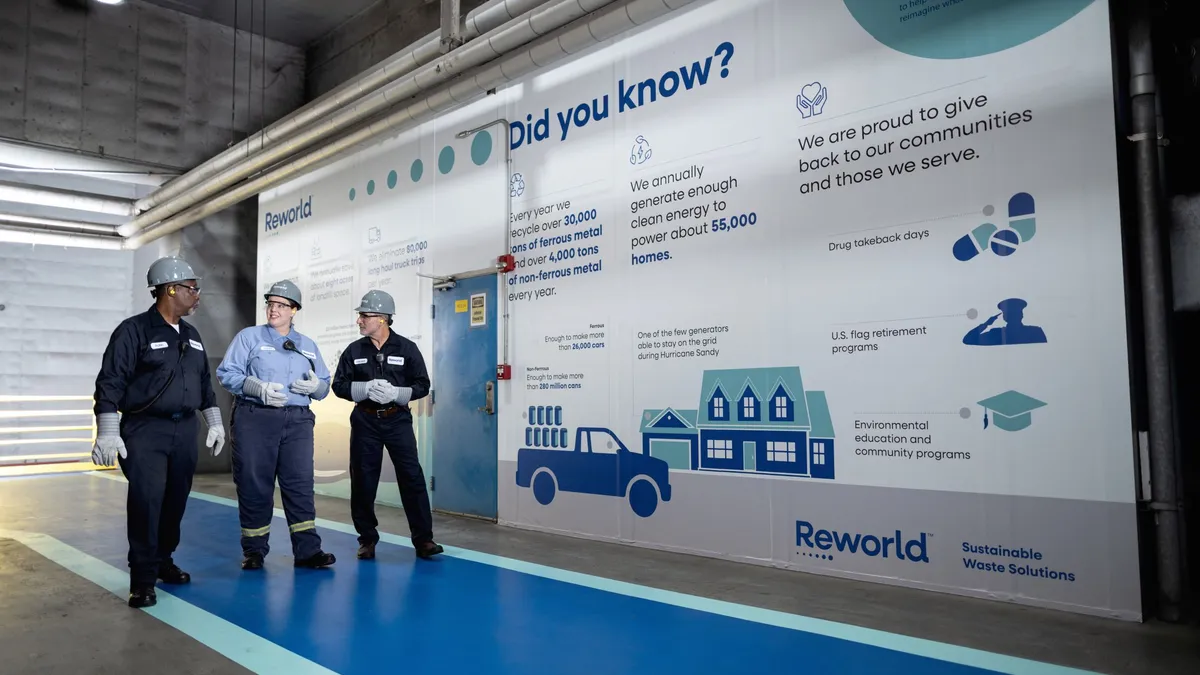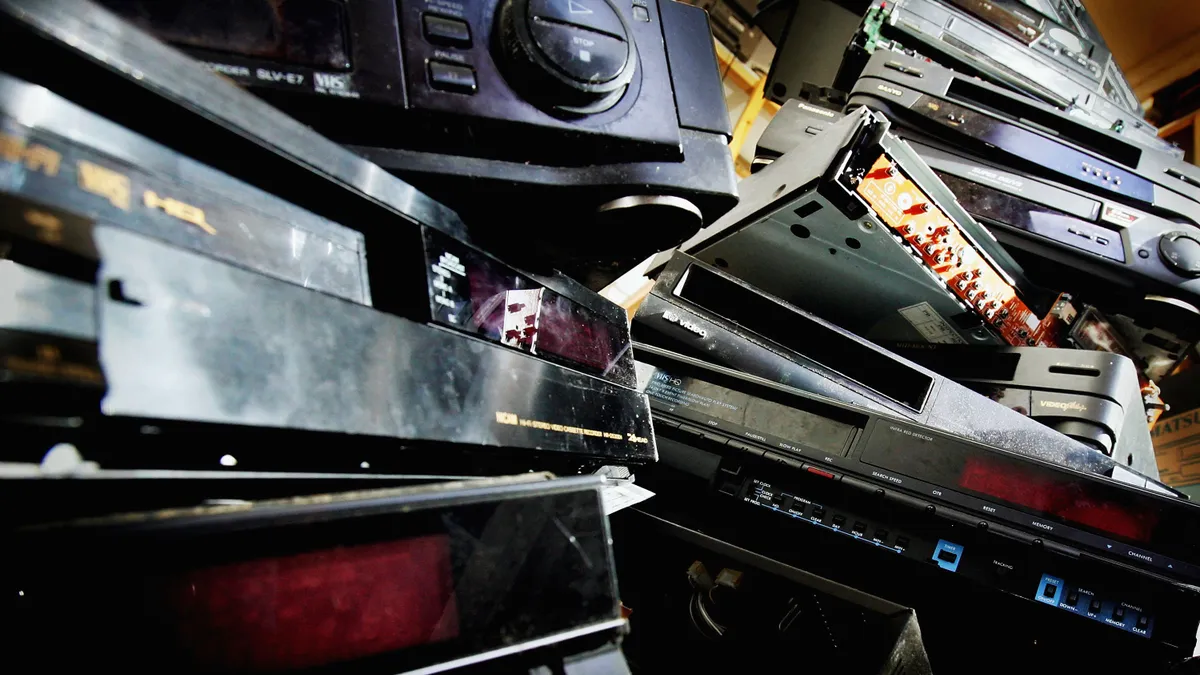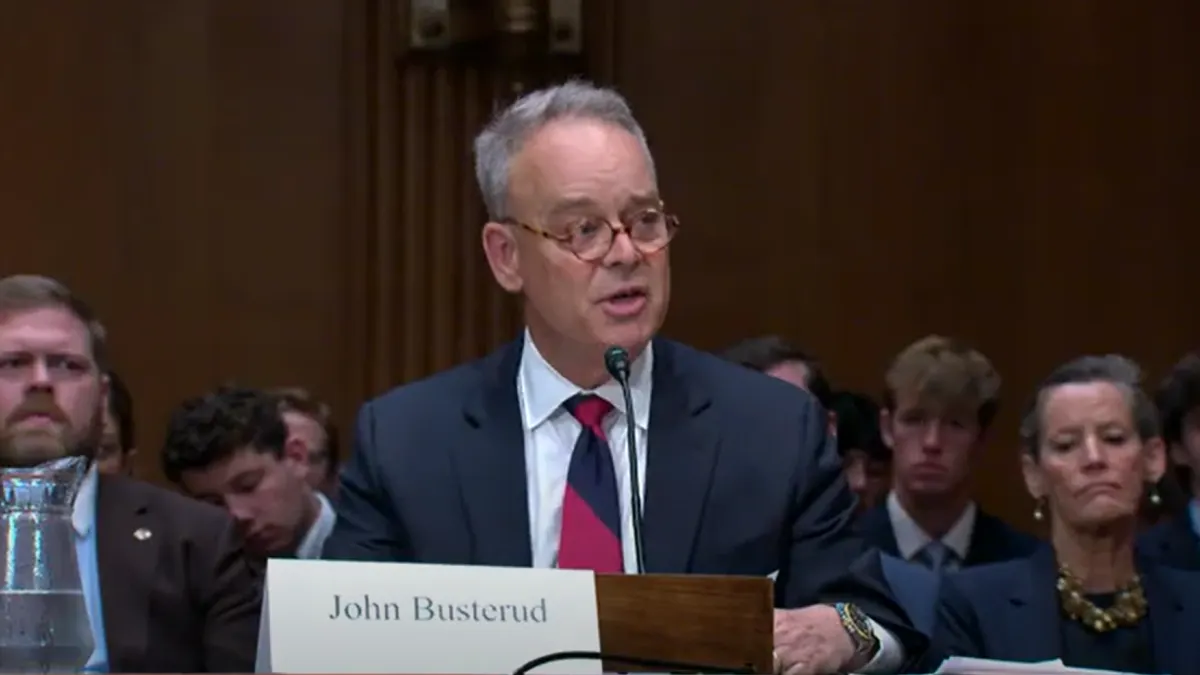UPDATE: June 2, 2022: A majority of Stericycle shareholders voted in favor of a proposal asking for an independent civil rights audit of the company at its annual meeting on May 26. The International Brotherhood of Teamsters, which backed the proposal, said in a statement that the audit will hold Stericycle accountable to workers of color and provides the union with an “excellent road map for future shareholder resolutions.”
This comes after a majority of WM shareholders on May 10 approved a similar Teamsters-backed proposal calling for an independent civil rights audit. Shareholders at Republic voted against a similar proposal May 19, as well as a separate proposal from investment firm Parnassus calling for an environmental justice audit.
April 22: The International Brotherhood of Teamsters has submitted shareholder proposals calling for WM, Republic Services, and Stericycle to conduct independent civil rights audits of their company operations. Separately, Parnassus Funds has called for Republic to undergo an environmental justice audit.
The Teamsters union and Parnassus, an ESG mutual fund investment firm, say the independent audits will give a more detailed, unbiased picture of how the companies handle factors such as hiring and promotion diversity, employee safety and environmental impact on surrounding communities. The proposals call for stakeholders such as civil rights organizations, employees and customers to weigh in on the audit process.
The boards of each waste company have recommended shareholders vote against the proposals, saying they already provide enough data and analysis on how they are working toward their diversity, equity and inclusion goals, who works at their companies, and how they operate within environmental and regulatory frameworks to avoid environmental justice issues.
The Teamsters said the racial justice concerns stemming from the police murder of George Floyd in 2020, along with the more recent health and safety impacts of COVID-19, have made it even more important to hold companies accountable for how they manage civil rights, gender and racial equity issues.
“These companies are putting out very grand statements, but we don't see them backed up when the frontline workers, over half of which are minorities, are facing all the risks, especially during the pandemic,” said Michael Pryce-Jones, the Teamsters’ senior governance analyst.
In recent years, civil rights audits have become a more common investor strategy to examine how major companies treat employees and view their overall DEI strategies. Amazon last week announced it would agree to a civil rights audit, while Apple, which initially opposed one, said this week it will commit to the audit after pressure from advocates. Facebook (now Meta) and Starbucks have also conducted similar audits.
Companies’ internal reports may offer some helpful data and statistics, but “an analysis from an outside perspective can catch the warts and all of what's going on in the company,” Pryce-Jones said. “It can interrogate what they've been doing, what hasn't worked in the past, and also analyze how effective all these grand initiatives they say are being launched.”
Republic Services
Beyond calling for an overall independent civil rights audit at Republic, Stericycle and WM, the Teamsters union has specific asks for each company. It wants Republic to provide detailed data that could show how effective the company’s current DEI initiatives are in promoting and protecting its employees of color.
In the shareholder proposal, the Teamsters said Republic fails to disclose specific targets for hiring or promoting minority groups at the higher levels of the company’s workforce, specifically executive-level positions. In its 2020 Equal Opportunities Commission reporting, Republic stated that nearly half of its workforce is ethnically diverse. The union takes issue with the fact that people representing ethnically diverse groups make up 13% of executive management, but they represent half of jobs labeled "operatives."
The Teamsters also said the audit is necessary to provide a more thorough, third-party evaluation of the environmental justice aspects of some of Republic's facilities and services. It calls for more data on the company's overall environmental justice footprint, including the sociodemographic characteristics of the communities where it operates.
Parnassus has filed a separate stockholder proposal calling for an environmental justice audit. Marissa LaFave, manager of ESG stewardship for the firm, said Republic must provide more environmental and demographic data to assess how its operations affect both past, present and future cumulative pollution impacts.
Parnassus says the data Republic has made available does not offer enough detail on “whether and where disparate impacts from its operations may exist, nor whether and how it has acted to mitigate these impacts,” according to its filing. Even if Republic has strong sustainability programs, it needs to offer more proof that “all positive impacts are equitably distributed, and all negative impacts are not disproportionately burdening marginalized communities,” she said.
Parnassus is not seeking a similar shareholder proposal with WM, she said, because that company "has taken many of the steps toward data consolidation and transparency that we're looking for." She pointed to WM's environmental justice webpage, which she considers to have easier-to-find information and mapping tools than some other companies.
Republic recommends shareholders vote against both the Teamsters and Parnassus proposals during its May 16 meeting. In an emailed statement, an unattributed Republic spokesperson said the company regularly engages with "stakeholder communities" and provides data on its workforce and environmental impacts. “We are proud of our track record in environmental justice and workplace diversity and we continuously engage with our communities to get their feedback on how we can improve,” the company said.
In the email, Republic also referred to its April 2022 environmental justice report and its 2020 Global Reporting Initiative report, which it says provides employee engagement scores broken down by both gender and ethnic diversity.
According to its proxy statement, Republic says 71% of its landfills are located in regions where the population of what it calls ethnic minorities is lower than the state average, or 51% when including hauling facilities, transfer stations and recycling centers. In a supplemental statement, it says the number is closer to 64% when measuring just a one-kilometer distance from each facility. Parnassus says this report is not a sufficient response to its proposal.
WM
In response to racial justice protests in 2020, WM was among the companies (including Republic) that released statements against racism. In its shareholder proposal, the Teamsters say WM has not done enough to back that statement up in recent years, calling for a civil rights audit to address inequalities in the number of high-level employees that are people of color, stating only 11% of executives are considered ethnically diverse.
“When you look at the executives, we see a lot lower proportion [of people of color,] and there's no interrogation of why that's the case,” Pryce-Jones said.
The Teamsters also take issue with a company employee’s assessment that hiring immigrants could help address hard-to-fill driver positions and diversify the workforce. The union says immigrants, particularly immigrants of color, are vulnerable to exploitation.
WM is starting to provide greater transparency on its overall environmental justice footprint, the union says, but it urges the company to “objectively [evaluate] how this data could be used to address the disproportionate impact of facilities on the public health and economic equality of communities of color.”
In its proxy statement, the company said it “respects” the request for an independent audit, but says the company has covered most of the request through its sustainability reporting. The company also hired a consultant in 2021 to review its ESG goals and help it set new ESG goals expected to be announced later this year.
WM says it also created a new environmental justice map showing all of its facilities and linking each to information from the U.S. EPA’s environmental justice mapping tool. “We are evaluating additional ways the tool might be used to provide information regarding Waste Management’s footprint and community impact,” it said.
Spokesperson Janette Micelli said the company did not have additional comments, and that the proxy statement "reflects our direct engagement with the Teamsters" on the issue. Shareholders will vote on the proposal May 10.
Stericycle
Stericycle stockholders will vote on a similar civil rights proposal from the Teamsters during its May 26 shareholder meeting. While Stericycle’s current reporting shows 58% of its U.S.-based hires in 2021 were racially or ethnically diverse, the union says Stericycle needs to offer EEO-1 data showing the breakdown of which job positions employees occupy. The Teamsters say this data is necessary to get a better picture of which operation-level employees are handling and transporting the regulated medical materials the company handles, which it says is among the more dangerous of the jobs employees carry out in the company.
Chuck Stiles, director of the Teamsters Waste and Recycling division, said the company needs to hire more workers of color, promote them more frequently and listen to their safety concerns. “They're not ready to let them have a seat at the table,” he said.
The union also calls for Stericycle to disclose the sociodemographic composition of communities surrounding its seven incinerators that handle hospital, medical and infectious waste, “or how, if at all, Stericycle is considering civil rights in locating and operating facilities.” It points to a recent $2.6 million settlement with the EPA and Department of Justice, which alleged the company's North Salt Lake, Utah facility emitted nitrogen oxide pollution.
Stericycle said in a proxy statement response that its incinerators are subject to more stringent emissions standards than other commercial waste incinerators. The Utah case was settled without any admission of fault, it said, and subsequent assessments show “minimal human health risk.”
Stericycle did not respond to a request for further comment, but the company’s proxy statement says it believes "our current framework for the implementation and oversight of our human rights commitments and stewardship is more effective than the broad and unfocused audit requested by the proposal.”
The company says its board formed an additional committee in 2020 meant to oversee environmental compliance, environmental sustainability and climate change issues. It also highlighted DEI strategies, including a recent analysis of its pay and equity factors, expansion of its parental leave program, and formalization of its supplier diversity program.



